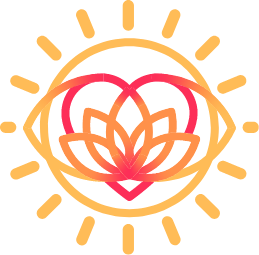Emotional Spirals
As a well-being coach for headteachers, I see how easily one challenging moment can throw us off balance. A tough meeting, an unexpected complaint, or a critical email can leave us unsettled. Then, as the day progresses, it seems like everything conspires to test our patience. We start anticipating more bad news, overanalysing emails, and ruminating on conversations with a growing sense of unease.
Emotional spirals, whether triggered by stress or overwhelm, have their own momentum. When we’re caught in one, they distort our thinking and drive behaviours that make the situation worse. For headteachers, this might look like withdrawing from your team, replaying difficult conversations in your mind, isolating yourself from support, or sacrificing movement and exercise in the name of “getting on top of things.” While working through the to do list may feel like the easiest or most comfortable option at the time, this can deepen feelings of anxiety, disconnection and exhaustion.
The key to breaking a downward spiral often lies in doing the opposite of what instinct tells us. It requires us to reach out for connection, engage in movement, or reframe our perspective—actions that feel difficult in the moment but create a much-needed disruption.
Last week, I found myself completely overwhelmed. Life felt like a never-ending to-do list: sorting out the ULEZ charges, tackling banking and broadband issues, managing my kids’ emotional ups and downs, meeting a book deadline, balancing a busy coaching workload, and launching an app—all while feeling drained and desperate for a break despite only just having half term!
I felt stuck. My mind kept cycling through all the things that were going wrong, fixating on the negatives. The more I focused on what wasn’t working and what I had left to do, the harder it felt to make any progress. It was like being caught in a downward spiral—mentally and emotionally trapped.
Even as a well-being coach, fully aware of the steps I needed to take—steps I regularly guide others through—I found myself so entangled in my own thoughts and resistance that it felt easier to surrender to the chaos of my disoriented state. What started to help me climb out wasn’t a dramatic fix or an overnight shift. I often tell my clients that i believe a positive experience can help to heal a negative one, and so I knew to look to change things up. As much as I felt like staying at home for the weekend, I booked a train, a hotel room and a pair of cinema tickets. I had committed myself to leaving the house, the life admin and the laundry behind. The first step out of the spiral was small, It began with a small step: changing my environment, booking a weekend away, and later, opening up to a trusted friend. Talking it through with someone who really listened helped me realise how trapped I’d been in my own head. I’d been ruminating on trivial problems and losing sight of the bigger picture.
The thing about emotional spirals is that they feed on themselves. When we’re in a downward one, it’s easy to feel powerless and stuck because our thoughts and actions reinforce that feeling. I’d been withdrawing, avoiding moments of connection, and trying to push through without taking care of myself as well as I could have been.
But here’s the key: to break free, we often have to do the opposite of what we feel like doing. For me, that meant stepping outside my routine, reaching out for trusted support, and prioritising something restorative.
The good news is that positive actions, no matter how small, have their own momentum too. That weekend away broke my cycle of negativity. I was able to step back, breathe, and notice what was still good in my life. I started to feel lighter, more open to solutions, and more attuned to the positive moments around me. I could see opportunities where before I’d only seen problems. My train this morning was cancelled, but instead of it being the straw that broke the camel’s back, I embraced it. I’ve got two extra hours in London today so I’ll go and check out an exhibition at a gallery.
This is an example of what researchers call “upward spirals.” Positive emotions, even brief ones, broaden our perspective and open us up to new possibilities. They don’t magically erase our challenges, but they make us more resourceful and resilient in how we approach them. Instead of feeling stuck in survival mode, we start to thrive.
The beauty of upward spirals is that one small shift can ripple outward, creating a chain reaction. For me, my weekend away helped me reconnect with joy, creativity, and purpose. It didn’t solve all my problems, but it gave me the energy and perspective to face them in a better frame of mind.
So if you find yourself stuck in a downward spiral, remember: even the smallest positive action can set you on a better path. Step outside your usual routine, connect with someone you trust, or try something that shifts your perspective. It might feel hard in the moment, but it’s the first step towards something better. Sometimes, all we need is a little momentum to turn things around. If you’d like coaching to help you out of a downward spiral, get in touch.
